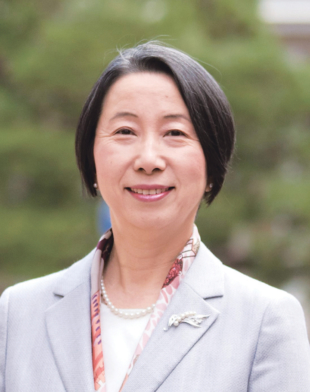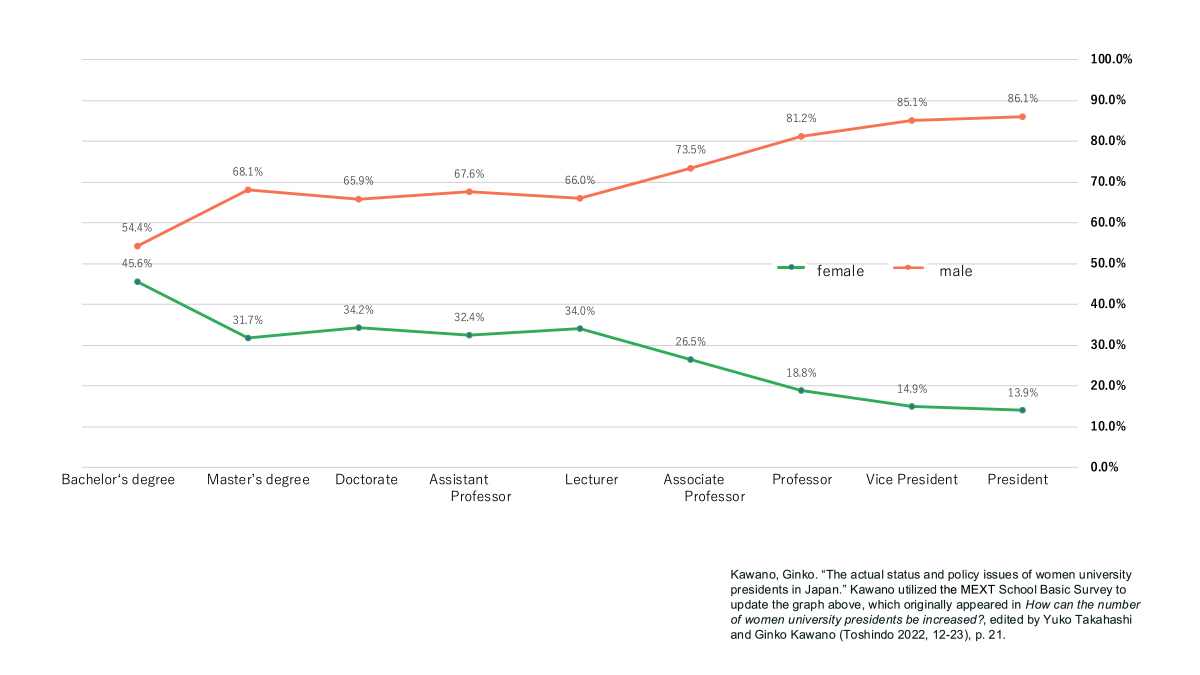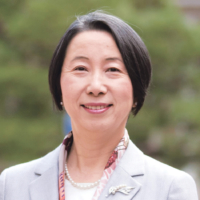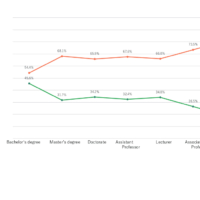Our founder, Umeko Tsuda, established Tsuda University in 1900. Umeko bravely challenged the patriarchal norms and customs of Meiji Era Japan and served as a pioneer in promoting women’s participation in higher education. As of 2024, Umeko’s image is featured on the new Japanese ¥5,000 note in recognition of her unique accomplishments. Her goal was to ensure that students develop in an “all-round” way to nurture independent women who can collaboratively work with men and contribute to society.

Is the Japan of today the one that Umeko visualized?
The World Economic Forum’s Global Gender Gap Index 2024 places Japan at 118th, indicating how underrepresented women in Japan are in the political and economic fields. Since we live under such conditions, it is difficult to imagine what society would be like if we could close the gap.
I believe that participation in the job market is not enough. Women’s involvement in top management roles is vital.
Addressing this issue requires the presence of more role models in leadership positions. Students benefit greatly from the mentorship of experienced women who have navigated various career paths. Women’s universities, in particular, can provide an environment that significantly influences students’ development and career choices.
When observing rituals such as entrance or graduation ceremonies in Japan, students predominantly see men in the roles of university representatives, such as presidents, board members or deans. This underrepresentation of women in such significant positions is a clear indication of the need for change.
Our university stands in stark contrast to this biased landscape. At Tsuda University, the majority of our presidents, deans and department chairs are — and have been — women. This representation is crucial in helping students envision their future roles. Schools like Tsuda University, with a significant presence of women in vital management positions, are essential for transforming the Japanese work environment.
Another crucial aspect that needs to be addressed is the encouragement of women in pursuing postgraduate education. The current number of women in graduate schools in Japan is significantly lower than the global average. As the academic ladder progresses to the master’s and doctoral levels, the ratio of women decreases further, highlighting the urgent need for action (see graph above).

This distortion in the gender ratio has a significant impact on disparity in Japanese education. It influences the political and economic spheres as well. We need to increase the value of postgraduate education by providing competitive jobs and salaries for those who have earned postgraduate degrees. To achieve this, universities, companies and government agencies need to work together.
Tsuda University set out its strategy for the future under the heading “Tsuda Vision 2030.” This lays out the university’s approach to developing and enriching higher education for women in a way that responds to the demands of the age while staying true to the spirit of the university’s founder, Umeko Tsuda. The overarching ideas of the strategy are expressed in the motto “Empowering Women to Make a Difference.” This reflects Umeko’s spirit and acts as our foundation in leading women’s higher education in Japan.
A long line of our graduates have pioneered in numerous fields: Ai Kume, one of the first women lawyers; Toshiko Yamane, the first woman diplomat; Mayumi Moriyama, the first woman chief cabinet secretary; and Kikue Yamakawa, the first woman to head the Women and Minors’ Bureau at the Ministry of Labor. Tsuda University aims to extend this line of women whose leadership will make a difference.







